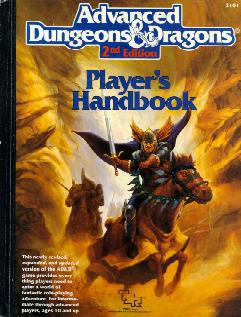The point is that the taboo can be broken just as easily as a vegetarian eats meat when necessary. The designers have said so. It's not hard for them to do it, they just choose not to if it isn't an emergency.
Yeah, but... A taboo is
supposed to be difficult to ignore*. If it's a thing that isn't hard to do, or isn't important to abide -- if it isn't causing great doubt, or risking shunning by the group, or evoking disgust or fear or shame -- it's not
really a taboo.
While someone who (for example) won't eat meat for religious reasons might (not
will, but might) violate that stricture in order to stave off starvation, that doesn't mean they'd do it willingly or without disgust. Afterward they may well feel intense guilt or shame, and the need to atone or confess or cleanse as appropriate for their faith. Likewise, if this druid restriction on metal is truly a taboo, then the expectation is that there ought to be some sort of serious struggle associated with violating it. It shouldn't be a casual thing in the game if it's a genuine taboo.
But how that plays out at the table will obviously vary a lot from player to player-- which is why I think some posters here are wary of addressing it all in the game. Why? Because for people (like me) who don't have tough religious limits in their lives, it's easy to shrug it off without really grasping the seriousness of such a inner conflict; so I run a real risk of roleplaying that to the point of insensitive disregard. And for someone who
does hold to some sort of taboo or strong religious restriction, they may simply not want to deal with that in a game they play for fun.
So I think that's a fair ask, just like any other "red line" is. If a player doesn't want the theme of taboo or religious inner-conflict in a game-- even in a general sense-- I'd work to accommodate that. I mean it's easy enough to clarify it before the players join the game and avoid the issue altogether, right?
* It really doesn't help that Sage Advice seems to misuse the word "taboo" here.
** And none of this, of course, excuses the horrible, no-good, burn-it-with fire and just-fix-it-already RAW on druid armor, however.




